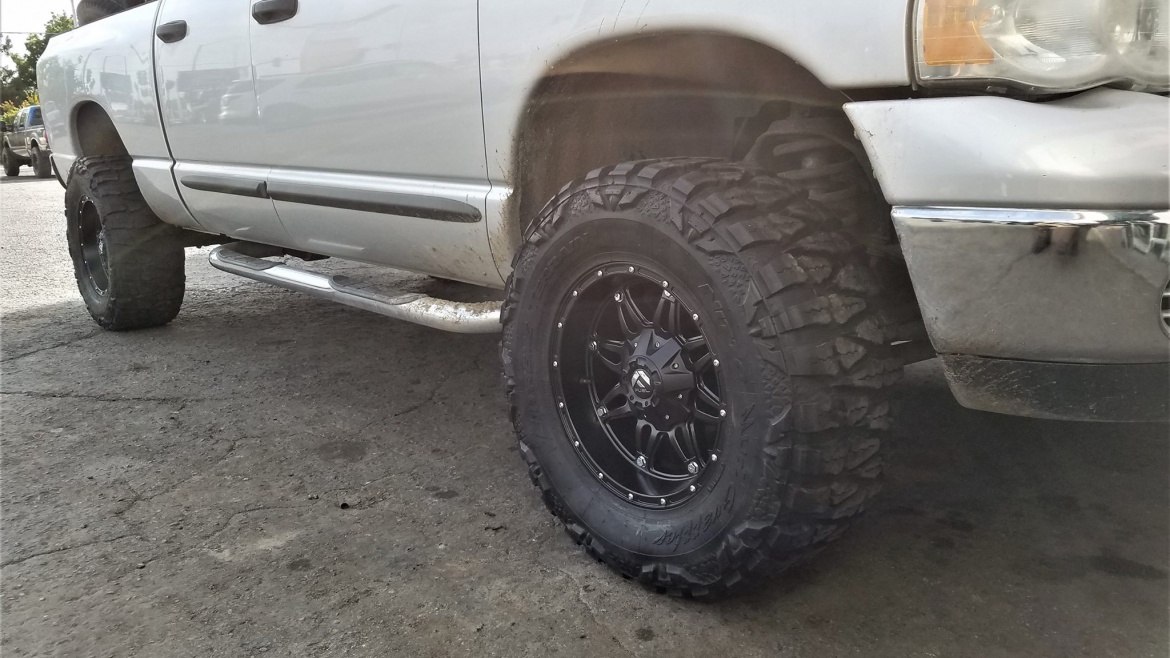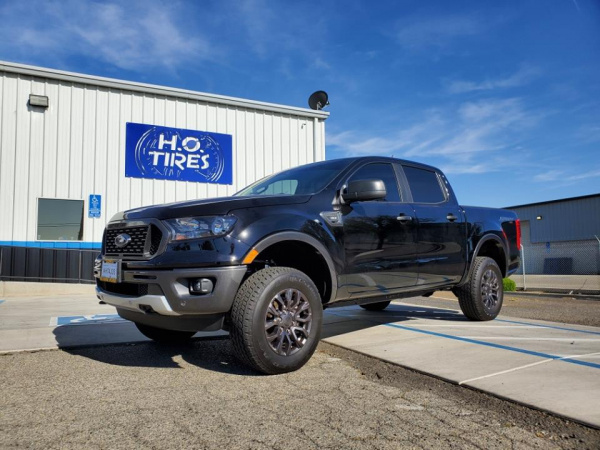Truck people tend to think of tire replacement time as a time of awesome opportunity and potential – and rightly so! Different tires can yield completely different outcomes in terms of truck characteristics, performance, and limitations. The variety of truck tires available means that there’s definitely a set out there that fits your priorities and the way you use your truck or SUV – it's just a matter of finding ‘em. But the wide variety of tire types and options can also confuse truck owners, or at least overwhelm them and put them into a perpetual state of indecision. The key to making the right tire selection for your truck is becoming acquainted with the types of tires available. Before you start considering individual tires, it’s best to determine which tire type will fit your needs and wants. Here's an overview of truck tire types to help you get started. 1. All-season (on-road performance focus) While there are exceptions to the rule, the vast majority of original equipment (OE) truck tires are all-season tires, which focus on on-road performance. If your truck was equipped with all-season tires from the factory, then you probably have plenty of miles to reflect on. From a performance standpoint, have you been satisfied with the experience? Or did the tires fall short off-road, through wintertime, or in any of your other driving contexts? Were they a hauling or towing limitation? Firestone Destination LE2 Firestone Destination LE2 All-season truck tires are ideal for drivers who drive the majority of their miles on-road and don't require higher truck performance limitations. Remember that your truck was engineered and tested using a particular type of tire. If your goal is to keep things as consistent as possible while being open to the possibility of moderate performance improvements (for example, greater comfort, fuel economy, wintertime traction, or on-road handling dynamics), then direct your focus toward all-season truck tires. 2. All-terrain (balanced on/off-road performance focus) All-terrain truck tires are for people who use their truck to work and/or adventure. All-terrain tires are ideal for drivers who split their time on- and off-road, or in other driving contexts where extra durability and higher performance limitations are advantageous. Examples include: mountain snowflake symbol Deep snow: An increasing number of all-terrain tires are severe snow rated (displaying the Three-Peak Mountain Snowflake symbol), and when paired with a 4x4 truck can effectively claw through some of winter's worst conditions. Cooper Discoverer A/T3 Cooper Discoverer A/T3 Driving on rough, potholed roads: Tougher sidewalls and superior durability make all-terrain tires preferable when the local road commission has gone missing in action. The extra ruggedness and capability of all-terrain tires does have some drawbacks on-road. Potential all-terrain buyers should allow for the possibility of more road noise, decreased fuel economy (due to more prominent tread blocks and heavier weight), and less handling performance/responsiveness. 3. Mud-terrain (off-road performance focus) For maximum off-road performance and the most aggressive look, mud-terrain tires are the way to go. Though they’re sometimes used on-road by everyday drivers, mud-terrain tires are engineered to accumulate the majority of miles in challenging off-road environments. Therefore, the ideal mud-terrain tire user spends up to 80% of the time off-road, and about 20% on-road. Nitto Trail Grappler Nitto Trail Grappler M/T The on-road drawbacks of all-terrain tires detailed above are typically amplified with mud-terrains. See All-terrain tires vs mud-terrain tires for an in-depth analysis. However, recent progress with noise-canceling tread pattern technologies has made mud-terrain tires more livable on an everyday basis than ever before. The comfort advancements have given rise to “hybrid” tires like the Nitto Ridge Grappler and Toyo Open Country R/T, which combine the best of all-terrain and mud-terrain tire technology.


